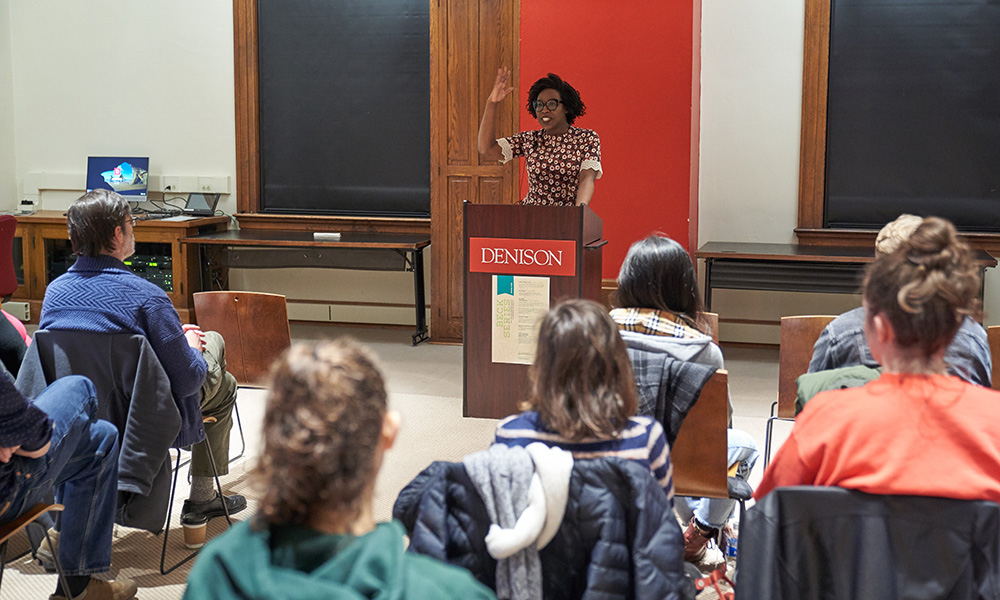The axiom that writers learn by writing is true, but they also can learn much from masters of the craft. Denison’s Beck Series, alongside a substantial grant from the Mellon Foundation, bring renowned authors and poets to the campus, providing exceptional opportunities for students to learn from expert writers in multiple genres.
Michael Croley, the director of the Beck Series, an associate professor, and an accomplished author himself shares insights about the advantage Denison students gain through these opportunities.
What do you think is the value of these programs?
As an apprentice writer the best thing you can do for yourself is expose yourself to more writers to help break down the romantic notion of what it means to be a writer and see that vibrant and meaningful content is being created in the era we live in now by real, living, and breathing authors who struggle to put pen to page same as you.
How do you choose the writers? Do students read their books as part of the curriculum?
We pick authors often in consultation with colleagues who may want to teach their books or by even asking students who they might be interested in seeing. Most of us try to teach at least one book by the author prior to their visit.
What are some memorable pieces of advice the writers shared with students?
Tayari Jones told our students that when “story plotting” she thinks about having a monetary budget of about $500 or $1000 dollars. The more spectacular your tale the more you’ll spend of that budget leaving little money leftover to tell the rest of the story. So you can have a huge, weird thing in your story but that will cost a lot and leave little money left over to do much else. It was really a great metaphor to think about what it is you value in the telling of your story and how you have to manage plot points.
The program brings writers to campus to meet with students in person. How did you respond to the restrictions brought about by the pandemic?
One of the only good things the pandemic did for us was allow us to use the generous endowment of Harriet Ewens Beck to support more writers than we ever have before. We streamlined our honorariums to offer set fees for guests no matter what stage of their careers and exposed our students some of the best editors and writers in America like Connie Schultz, Emily Nemens of The Paris Review, Nana Kwam Adjei-Brenyah, and Garnette Cadogan to name just a few. These were folks who gave virtual readings but also made class visits. It’s really one of the great gifts of Denison that we are able to provide our students visits with some of the most important writers working today and allowed us to continue to offer a dynamic education in the middle of this pandemic.
“We will continue to expose our students to the many divergent voices shaping the American story in the 21st Century.”
Will you retain any of those practices moving forward?
The class visits have been hugely successful in my classes and I think since everyone is so comfortable with the technology now there’s no reason to stop doing these visits. Writers are emboldened by them and impressed by the quality of questions they receive from our students. Our students are enlivened by the chance to talk to these writers and ask them questions about their work and their practice.
What would you like these programs to look like in the future?
I like how we’re doing them now. I think one of our strengths as a program in the nine years I’ve been here is that we have always done a good job of mixing up our visiting writer lineups. We have never leaned on any one demographic. It’s a real strength of the Beck Series that certainly predates my time at Denison. The culture, writ large, is looking to highlight marginalized voices and I think we’re in a unique (and welcome) position to answer that call. Our lineups going forward will continue to expose our students to the many divergent voices shaping the American story in the 21st Century.
Anything else you would like to add?
I feel fortunate to work at a university and with colleagues who are so strongly committed to the arts and literature. Our students reflect that back to us in the enthusiasm they bring to these readings and the work they turn in for us, year after year.







